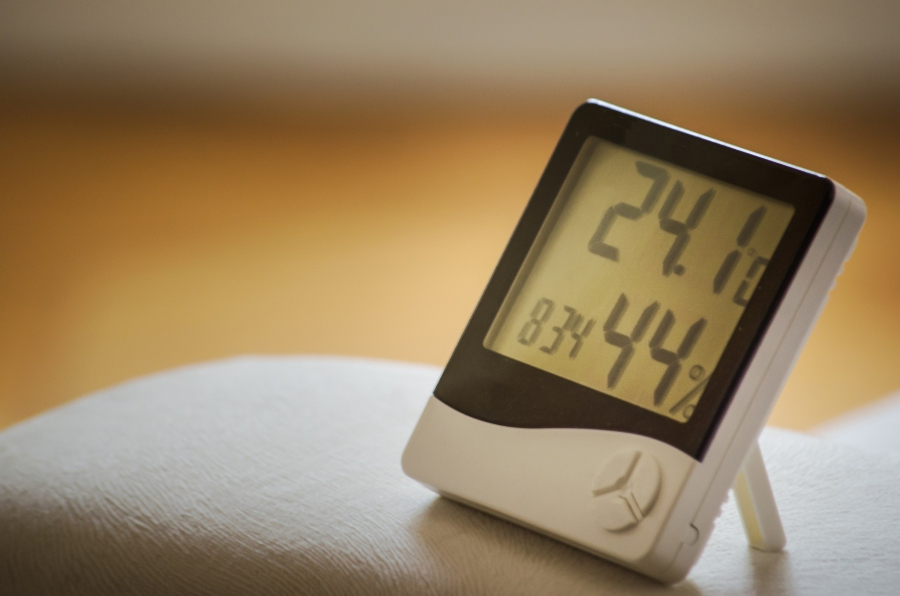
Humidity is often an overlooked factor that plays a crucial role in how comfortable we feel within our living spaces. It refers to the amount of moisture present in the air, and it's not just about the clammy feeling you get on a humid summer's day. Whether you're in a hot and humid climate or living where seasonal changes cause fluctuations in moisture levels, understanding how humidity affects your HVAC system is essential for maintaining both optimal comfort and energy efficiency.
Seasonal changes, in particular, can significantly influence indoor humidity levels. During the summer, the air tends to be more humid, while winter brings drier conditions. These fluctuations have a direct impact on the performance of your heating, ventilation, and air conditioning (HVAC) system, not only altering your comfort levels but also affecting the system's efficiency and longevity.
Understanding Humidity's Effect on HVAC Systems
Humidity plays a multifaceted role in influencing indoor comfort. High humidity levels can make the air feel warmer than it actually is, leading to discomfort, while low humidity can cause dry skin, irritated eyes, and an increase in susceptibility to respiratory illnesses.
- Temperature Perception
High humidity levels hinder the body's ability to cool itself through perspiration, making the air feel warmer. On the other hand, low humidity accelerates evaporation, making the air feel cooler, leading to an inconsistent perception of temperature. - Health Concerns
High humidity can promote the growth of mold and mildew, contributing to allergies and respiratory problems. Conversely, overly dry air can cause skin irritation, cracked lips, and increase susceptibility to colds and flu. Striking the right balance is essential for overall well-being.
Impact on HVAC System Efficiency
Humidity levels are more than a matter of personal comfort; they also have a significant effect on your HVAC system's efficiency and maintenance.
- Energy Consumption
High humidity levels force your air conditioning to work harder to cool the air, leading to increased energy consumption and higher utility bills. During the winter, low humidity levels may cause the heating system to overwork to compensate for the chillier feeling air, similarly affecting energy efficiency. - Maintenance Issues
Excess humidity can lead to condensation in the system, potentially causing rust and other mechanical issues, reducing the lifespan of the system. Insufficient humidity might cause wooden elements in your home to crack and warp, indirectly affecting the indoor climate and potentially demanding additional HVAC work.
Understanding and controlling humidity is a critical aspect of maintaining a comfortable, healthy living environment, and ensuring that your HVAC system operates at peak efficiency.
Solutions to Control Humidity in Your Home
Controlling humidity in your home isn’t just about enhancing comfort; it's also about maintaining an efficient HVAC system and ensuring a healthy living environment. There are several strategies you can employ to keep humidity at optimal levels, from using dehumidifiers to embracing innovative solutions like Nest Learning programmable thermostats.
Using Dehumidifiers
Dehumidifiers are specialized appliances designed to remove excess moisture from the air, helping to maintain a comfortable and healthy environment. While not provided by The Boiler Shoppe, understanding how dehumidifiers work can be an essential part of your humidity control strategy.
Dehumidifiers work by drawing in humid air from the room, cooling it down to condense the moisture, and then reheating it before releasing it back into the space. The water extracted from the air is either drained away or collected in a tank.
When selecting a dehumidifier, it's important to consider factors such as the size of the space, the existing level of humidity, and specific requirements like energy efficiency or noise levels.
Although dehumidifiers are not a replacement for your HVAC system, they can complement it by maintaining optimal humidity levels, thereby making the heating and cooling processes more efficient and enhancing the overall performance of your HVAC system.
Maintaining Optimal Humidity Levels
Keeping humidity levels in the ideal range (generally between 30% and 60%) is crucial for comfort, health, and system efficiency. Below are some practical tips and strategies:
- Ventilation
Proper ventilation helps to reduce moisture levels in areas like bathrooms and kitchens where humidity tends to be higher. - House Plants
Some house plants can absorb excess moisture from the air, serving as natural dehumidifiers. - Regular Maintenance
Regular check-ups and maintenance of your HVAC system by professionals ensure that it's working efficiently, helping to control humidity.
Nest Learning Programmable Thermostats
Introducing a smart thermostat like the Nest Learning programmable thermostat can be a game-changer in controlling humidity:
- Humidity Control
This advanced thermostat not only adjusts temperatures but can also monitor and control indoor humidity levels, ensuring a consistently comfortable environment. - Smart Learning
Over time, the Nest Learning thermostat learns your preferences and adjusts settings accordingly, leading to increased efficiency and comfort. - Integration with HVAC System
By seamlessly integrating with your existing HVAC system, this thermostat provides real-time adjustments to both temperature and humidity, aligning with your unique needs.
Controlling humidity doesn't have to be a complex or costly endeavor. By understanding the importance of humidity control and investing in the right tools, such as the Nest Learning programmable thermostat, homeowners can maintain comfort, health, and HVAC efficiency.
Practical Tips for Your HVAC System
Maintaining and optimizing your HVAC system with regard to humidity requires more than just a one-time solution. It's an ongoing process that can be managed with some simple yet effective strategies. Here are some practical tips to consider:
- Regular Maintenance Checks
Have professionals like The Boiler Shoppe periodically inspect your HVAC system for any signs of wear or malfunction that could be affected by humidity levels. - Use a Hygrometer
A hygrometer can measure the moisture content in the air, helping you monitor indoor humidity and make necessary adjustments. - Invest in Quality Air Filters
High-quality filters can help in trapping moisture and pollutants, aiding in humidity control. - Seal Leaks
Inspect and seal any leaks in ducts and windows to prevent humid outdoor air from entering. - Use Exhaust Fans
Proper usage of exhaust fans in bathrooms and kitchens can help in expelling excess moisture. - Consider a Programmable Thermostat
Products like the Nest Learning thermostat can automatically adjust the humidity levels to your desired setting. - Mind Your Plants and Water Sources
Being mindful of the placement of house plants and other sources of moisture can help in managing indoor humidity.
Understanding the impact of humidity on your HVAC system is more than just a matter of comfort; it's essential for your home's overall health and energy efficiency. By taking these factors into account, homeowners can create a more comfortable living space, reduce energy bills, and extend the life of their HVAC system.
If you're looking to make these improvements in your home, don't hesitate to reach out to The Boiler Shoppe, your trusted partner in providing expert solutions for all your HVAC needs.
